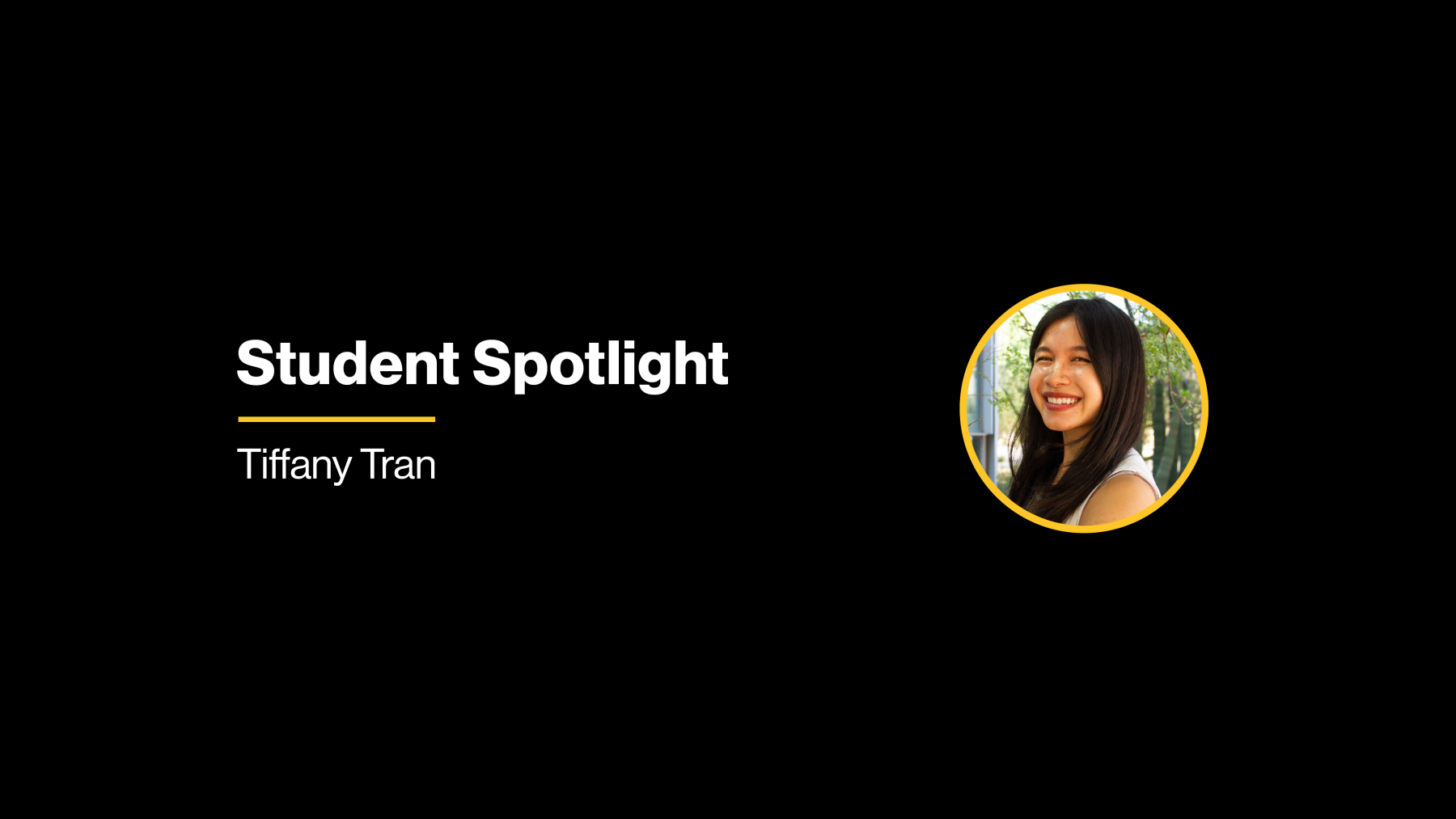
Graduate College Enrichment Fellowship recipient explores factors that shape development
We’re excited to introduce Tiffany Tran, a recipient of the Graduate College Enrichment Fellowship, who is passionate about understanding how environmental and genetic factors influence youth development. In this Q&A, she covers why this research is important and discusses long-term goals and shares her self-care rituals!
Name: Tiffany Tran
Degree: PhD
Program: Clinical Psychology
College: The College of Liberal Arts and Sciences
Please tell us about your academic and professional background.
I got a bachelor's degree in economics from the University of California, San Diego, and a master's degree in education, specializing in quantitative psychology, from Vanderbilt University before beginning the Clinical Psychology PhD program at ASU. I chose ASU because of its outstanding faculty, world-renowned research institutes (specifically, the REACH institute) and community-centered approach to research and implementation.
What's something you learned during your professional or academic journey that surprised you or changed your perspective?
During my journey, I learned that many professionals value the opportunity to mentor others. This made me realize that my goals were not ones I would have to pursue alone but rather with my mentor's insight, support and learning experiences.
What types of problems do you work on and why do you think they are important?
I work on understanding how environmental and genetic influences interplay to affect developmental outcomes in youth. I mainly focus on parenting as an environmental influence. I plan to identify targetable behaviors that may buffer negative developmental cascades and provide insight into how to develop effective parenting-based interventions. This is important because the intersection of psychosocial and biological variables in research makes strides toward personalized approaches to treatment.
How did you become involved in this work? What inspired you?
In 2014, I started my journey as a research novice. I received a couple of small projects regarding different aspects of health communication, including physician-patient communication and the disparity in physician-patient communication among ethnic patients and women's antenatal care. I reported my findings in research papers published in local and international journals. These research projects were a turning point in my career; they increased my interest in learning methods using Statistical Package for the Social Sciences software and writing research reports.
How have you interacted with the Graduate College? Is there an event, initiative or funding opportunity you're excited about?
My journey as a recipient of the Graduate College Enrichment Fellowship has been a unique and enriching. The opportunity to immerse myself in a community of diverse fellows, each with unique experiences, has been invaluable. The focus on research and the chance to adapt to a new academic environment as a first-year PhD student has been a transformative experience.
The support and interactions with the Graduate College have been exceptional. The initiatives are truly student-centered, and I am particularly thrilled about the Graduate Enrichment Fellowship I am funded by. This fellowship provides a conducive environment for research and facilitates connections with other fellows and alums, fostering a strong network of scholars.
What advice do you have for students interested in your field or higher education?
My advice is to be honest and reflect. Be honest about what you see yourself succeeding in and finding happiness doing. In part, this comes from reflection. Take a moment to stop and think about what you’re doing. Reflect on how you feel by thinking about the relevance of what you are doing and its relation to your future goals. Importantly, be comfortable taking the initiative to move things in the right direction if needed.
What are your relaxation practices to recharge during the semester?
My traditions and rituals include walks, working out, eating something delicious, calling my family and making time for friends.
What are some of your long-term professional goals?
My long-term professional goals are to share time doing research, mentoring, and teaching and to offer pro-bono therapy or psychoeducational sessions to those from underserved communities.
Learn more about the Graduate College Enrichment Fellowship
More stories from the Graduate Insider

Inside Graduate College’s Three Minute Thesis competition
When Aliyah Egan stepped onto the stage as a master’s student in last year’s Graduate College Three Minute Thesis (3MT) competition, she faced a challenge familiar to many researchers: explaining complex, specialized work to an audience with little or no background in her field.

Mentoring with intention: Strengthening graduate support at ASU
January is National Mentoring Month, a time to celebrate the impact mentoring can have and to reflect honestly on where gaps remain. At Arizona State University, mentoring is recognized as a critical component of graduate student success.

Graduate education is an adventure
About eighteen months ago, I set out on a journey walking the islands of the Dodecanese during a sailing trip in Türkiye and Greece with several friends. Along the way, I found winding paths, timeless villages and breathtaking views of sea and sky. That experience got me thinking about how adventure shows up in other parts of life, especially in learning.